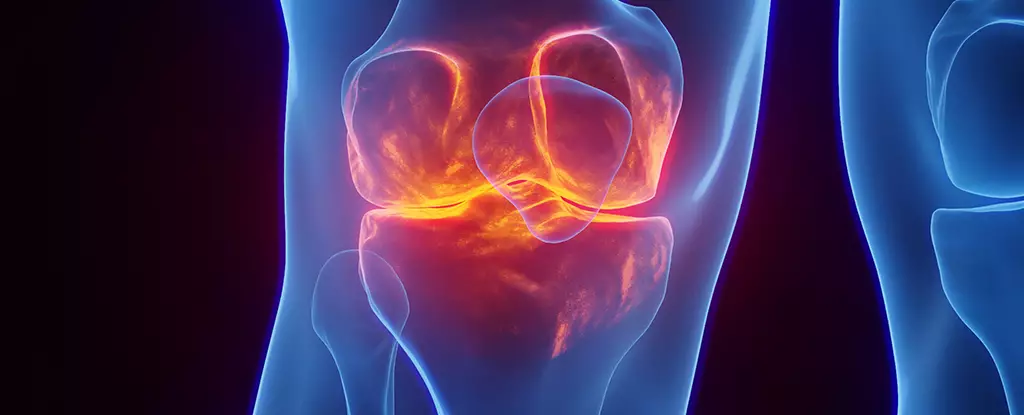Every morning, many individuals set out for a simple walk, only to be jolted by an unexpected sound—an audible crackle or grind emanating from the knee joint. This phenomenon, known as knee crepitus, is often met with anxiety and fear, driven by the misconception that such noises signal impending arthritis or irreversible damage. Contrary to popular belief, these sounds are predominantly benign, deeply embedded in the complex biomechanics of the knee, and shouldn’t serve as a reason to halt physical activity.
Knee crepitus manifests through various sounds—cracking, popping, or grinding—that occur during movement. Despite widespread concern, the scientific community has yet to pinpoint a definitive cause for these noises. Theories suggest that they arise from multiple factors: minor cartilage irregularities, the tendons gliding over bones, or gas bubbles in synovial fluid popping as they escape. Interestingly, research highlights that a significant portion of the population—up to 41%—experience knee sounds without any discomfort or underlying issues, reinforcing the idea that crepitus alone is often harmless.
Dispelling the Fear: Is Knee Noise Indicative of Damage?
One of the reasons knee crepitus terrifies many is the association with aging and joint deterioration. Indeed, among older adults with osteoarthritis, the prevalence rises dramatically, with over 80% experiencing knee cracks and noises. However, this statistic does not establish causality—noisy knees are more a symptom than a predictor of disease. In fact, longitudinal studies reveal that individuals with crepitus, especially when asymptomatic, rarely develop osteoarthritis over the subsequent years.
For younger individuals, the presence of knee sounds after injury is common, particularly following ligament or cartilage trauma. Yet, research indicates that although these noises may sometimes correlate with minor cartilage damage, they do not predict a worse prognosis or progressive deterioration. An intriguing finding from recent studies shows that while initial discomfort may be heightened in injured knees with crepitus, long-term outcomes tend to be unaffected. This provokes a critical question: Should we allow knee noises to dictate our activity levels? The answer is a resounding no.
Maintaining Confidence and Mobility: The Real Keys to Healthy Knees
The most empowering aspect of understanding knee crepitus is recognizing that it is, in most cases, a normal variation within a healthy, functioning joint. Moving with your body, engaging in regular exercise, and maintaining a healthy weight remain the most effective strategies for preserving knee health. Resistance training, aerobic activity, and weight management do more to protect your joints than avoiding the very activities that keep you active.
However, caution is warranted if knee noises are coupled with pain, swelling, stiffness, or instability. These symptoms may warrant a comprehensive assessment to rule out underlying issues such as meniscal tears, ligament injuries, or early signs of arthritis. In such cases, a healthcare provider might recommend targeted physiotherapy, weight adjustments, or medication to manage symptoms, but these interventions should be tailored and not driven solely by the presence of crepitus.
The Importance of Critical Information and Personal Empowerment
A troubling trend is the proliferation of misinformation online regarding knee health. Many websites promote unproven remedies or alarmist narratives that can hinder individuals from staying active and engaged. It is essential to approach such advice with skepticism and rely instead on evidence-based insights from qualified health professionals. The reality is that knee crepitus, especially when isolated and painless, does not justify drastic lifestyle changes or invasive procedures.
Ultimately, the journey to healthy knees is less about avoiding noises and more about embracing an active lifestyle. Staying informed, listening to your body, and seeking professional guidance when necessary empower you to move confidently. The truth about noisy knees is that they can be a normal part of aging or injury recovery, not a sign of impending disaster. In fact, the best response to knee crepitus is to keep moving—because an active joint is a healthy joint.


Leave a Reply